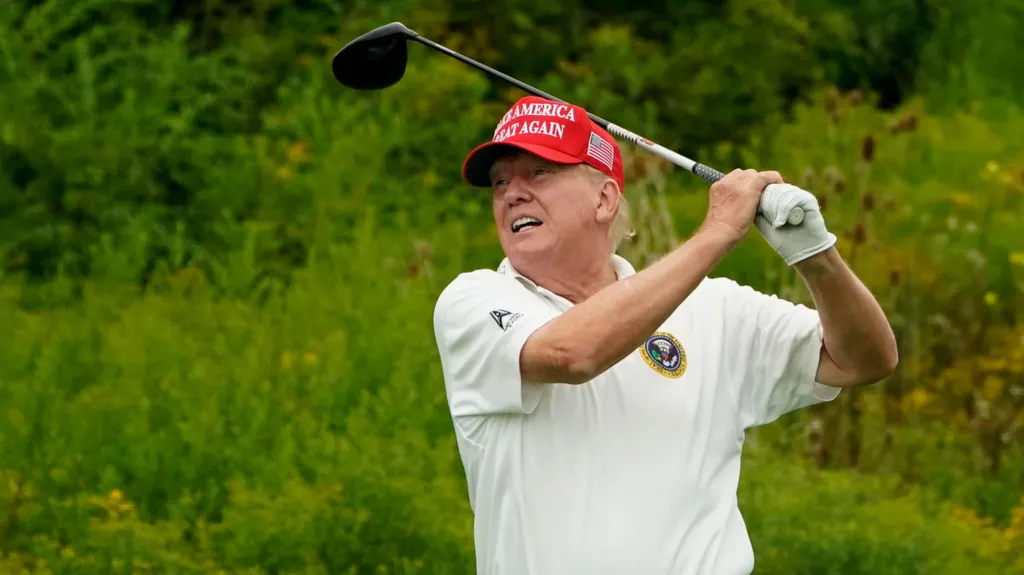March 29, 2025 – As U.S. President Donald Trump’s self-proclaimed “Liberation Day in America” approaches next week, countries across the globe are preparing for a new wave of reciprocal tariffs that could further disrupt international trade. Vietnam, which has enjoyed economic benefits as companies shifted operations from China to its shores, finds itself particularly vulnerable to Trump’s latest tariff measures.
Vietnam’s Growing Trade Vulnerability
Vietnam has emerged as a key player in global supply chains over the past decade, particularly as Western firms sought to diversify their manufacturing operations away from China to avoid U.S. tariffs imposed during Trump’s first term. This shift has led to a significant increase in Vietnamese exports to the United States, contributing to a growing trade surplus that has placed Vietnam squarely in Trump’s crosshairs.
With the United States now preparing to impose reciprocal tariffs on trading partners that run large trade surpluses, Vietnam’s economic fortunes hang in the balance. The U.S. has consistently run a sizable trade deficit with Vietnam, which topped $116 billion in 2024, making the Southeast Asian nation a prime target for Trump’s aggressive tariff policies.
Prime Minister Pham Minh Chinh Suggests Golf Diplomacy
Amid rising concerns over Vietnam’s economic vulnerability, Prime Minister Pham Minh Chinh has signaled a willingness to explore unconventional diplomatic strategies to strengthen ties with the Trump administration. Speaking at an international business forum in January, Chinh jokingly suggested that he would be willing to visit Trump’s Mar-a-Lago estate in Florida and “golf all day long” if it could help secure Vietnam’s economic interests.
“If golfing at Mar-a-Lago can bring benefits to Vietnam, I am ready to spend the whole day on the course,” Chinh quipped, drawing laughter from the audience. While delivered in a lighthearted manner, his remark underscores Vietnam’s awareness of the need to cultivate strong personal ties with Trump, who maintains a deep affection for the sport and his sprawling luxury estate in Florida.
Trump Organization Eyes Major Investments in Vietnam
Prime Minister Chinh’s comments may not be entirely off the mark. According to sources cited by Reuters, the Trump Organization is reportedly planning to invest billions of dollars in golf courses, hotels, and real estate developments in Vietnam. The first of these projects is expected to be a residential complex featuring three 18-hole golf courses, with groundbreaking set for May 2025.
While the Trump Organization has yet to confirm the specifics of these investments, the potential infusion of American capital into Vietnam’s tourism and real estate sectors could provide a valuable avenue for strengthening economic ties between the two countries.
Vietnam’s Strategic Position in U.S.-China Trade Tensions
Vietnam’s rise as a manufacturing hub has been fueled, in large part, by the shifting dynamics of U.S.-China trade relations. As U.S. tariffs on Chinese goods drove companies to seek alternative production sites, Vietnam became an attractive destination due to its lower labor costs, improving infrastructure, and proximity to global supply chains.
- Electronics and Textiles Boom: Vietnam has become a key supplier of electronics, apparel, and textiles to the U.S., with major brands such as Apple, Samsung, and Nike increasing their reliance on Vietnamese factories.
- Diversification from China: By positioning itself as an alternative to China, Vietnam has managed to capture a significant share of the global export market, but this success has also made it a target for protectionist measures from Washington.
Golf Diplomacy: Can It Really Work?
The concept of “golf diplomacy” may seem unorthodox, but it reflects a broader strategy of leveraging personal relationships to achieve diplomatic and economic objectives. Trump’s penchant for mixing business with politics is well known, and his enthusiasm for golf has often served as a backdrop for informal diplomatic engagements.
- Mar-a-Lago as Diplomatic Ground: During his first term, Trump famously hosted world leaders such as Japanese Prime Minister Shinzo Abe and Chinese President Xi Jinping at Mar-a-Lago, where rounds of golf often accompanied high-stakes negotiations.
- Building Personal Rapport: Analysts suggest that Chinh’s willingness to engage in golf diplomacy could help build a personal rapport with Trump, potentially smoothing over tensions and opening the door for more favorable trade negotiations.
Potential Benefits for Vietnam
If successful, golf diplomacy could yield several benefits for Vietnam:
- Reduced Tariff Exposure: Establishing a stronger relationship with Trump could lead to more lenient tariff policies, helping Vietnam maintain its trade advantage.
- Increased U.S. Investment: Trump Organization investments in Vietnam could pave the way for additional U.S. capital inflows into the country’s real estate, tourism, and infrastructure sectors.
- Enhanced Diplomatic Ties: Strengthening personal ties between Vietnamese leadership and Trump could create a foundation for broader diplomatic cooperation beyond trade.
Challenges and Risks
However, the strategy is not without its risks.
- Potential for Political Criticism: Engaging too closely with Trump’s business interests could expose Vietnam to accusations of cronyism or undue influence.
- Uncertain Policy Landscape: With Trump’s policies often shifting unpredictably, there is no guarantee that personal diplomacy alone can shield Vietnam from future tariff measures.
- Retaliation from China: Vietnam’s growing closeness to the U.S. could provoke a backlash from China, which remains a crucial economic partner and neighbor.
Outlook: A Delicate Balancing Act
As Vietnam navigates the uncertain waters of global trade under Trump’s second term, its leaders will need to carefully balance diplomatic engagement with economic pragmatism. While golf diplomacy may offer an unconventional path to safeguard Vietnam’s interests, it remains to be seen whether a few rounds at Mar-a-Lago can truly reshape the course of U.S.-Vietnam trade relations.
With billions of dollars in trade and investment at stake, Vietnam’s leaders are teeing up for a high-stakes game where the next move could determine the country’s economic trajectory for years to come.



0 Comments